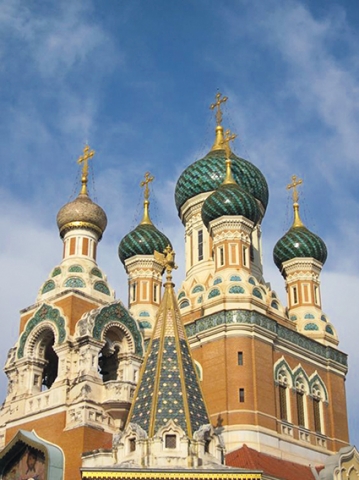Russia as the “Third Rome” for Orthodoxy?
Op-Ed
The confrontation within the Orthodox world is reaching a peak. The battle between Athens and Moscow has moved from the pulpit to the diplomatic offices. It started when two Russian diplomats were expelled from Athens and two others were banned from entering the country. This wasn’t enough for Official Athens, which stopped granting visas to high priests from the Russian Orthodox Church. Although Official Moscow was forced to respond by expelling two Greek diplomats, it was unable to do much on the church frontier, as Russia is not found on the pilgrim map and so the Kremlin couldn’t ban Greek high priests from entering Russia. The church conflict between the two countries hasn’t evolved beyond the diplomatic phase yet, but the development of events implies that the smell of incense is souring.
The relationships intensified when Russia boycotted the landmark meeting of the world's Orthodox Christian churches held on the Greek island of Crete and even incited other churches, including the Georgian, against it. After the political return of “Derzhava” to the international arena, the Kremlin has found time to focus on religious issues and began working on its “Third Rome” project. In Moscow, they firmly believe that after the collapse of Constantinople, it is Moscow and the Russian Church that should undertake the function of the world Orthodox center. It was within the “framework” of this doctrine that the Kremlin started to act when it decided to bribe the Greek high church officials in order to increase Russian influence and plan a conspiracy against the Ecumenical Patriarch Bartholomew.
The Kremlin picked on the Patriarch after the Ukrainian Orthodox Church demanded autocephaly and independence from the Russian Church. This triggered the boycott of the Russian Church and Georgia joined, which was more of a forced step in light of the “Cyanide Case” rather than the decision of the Georgian Church. The fact that Russia has an influence on the Georgian Orthodox Church was exposed during the battle for the inheritance of the throne of Ilia II, where the pro-Russian and pro-Greek groups are confronting each other. The Cyanide Case and the Greek chants are an obvious manifestation of this conflict.
Local and large-scale religious conflict between Athens and Moscow further escalated when the Greek Church agreed to grant autocephaly to Ukraine, and the Greek government agreed to the membership of Macedonia to NATO. This was followed by the reaction from the Kremlin and the referendum in Macedonia about the new naming of the country. Macedonians and Greeks did not act as Putin would have hoped, hence his financial aid granted to the country has been “wasted”. The example of Greece revealed that neither faith nor state interests can be sold for money. Putin thought that the financial assistance would result in a responsibility for Greece to lead pro-Russian interests in both politics and religion, but alas. Hopefully, Georgia will follow suit and act only in the interests of its country and faith.
By Zaza Jgarkava












